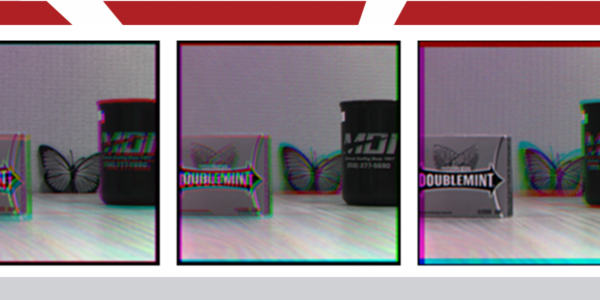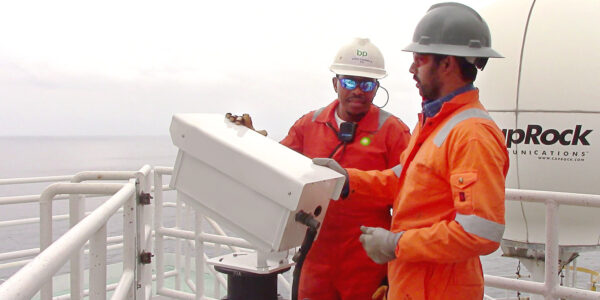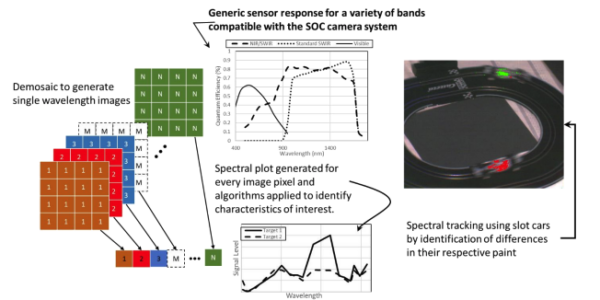Live multispectral video acquisition and processing
LightShift™ captures and processes spectral data at video rates and performs live automated calibration and spectral correlation algorithm processing. Employing a novel plenoptic spectral imaging design, LightShift cameras offer customizable sixteen-band filter sets to tailor multispectral imaging detection to your application.
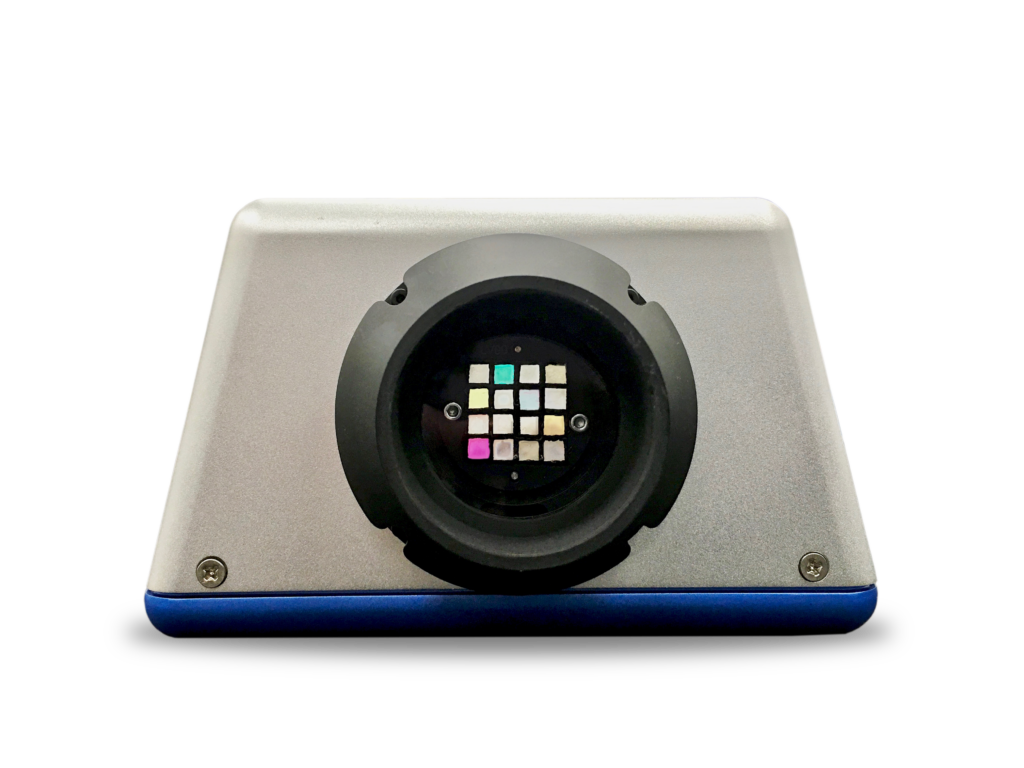
Applications
HIGH PERFORMANCE MULTISPECTRAL IMAGING
Real Time Processing
Snapshot spectral imagers obtain the entire spectral dataset during a single detector integration period, which provides a distinct advantage in spectral imaging of fast-changing phenomena.
The amount of information generated by snapshot systems is still a key challenge since their application to many practical tasks depends on the ability to process substantial volumes of data to make decisions in real time. A snapshot multispectral video system must process at rates keeping pace with the real-time acquisition of images.
LightShift is unique in its capability to process images spectrally in real time, from initial gain and offsets compensation to spectroradiometric calibration through decision-oriented processing, including spectral correlation using varied algorithms.
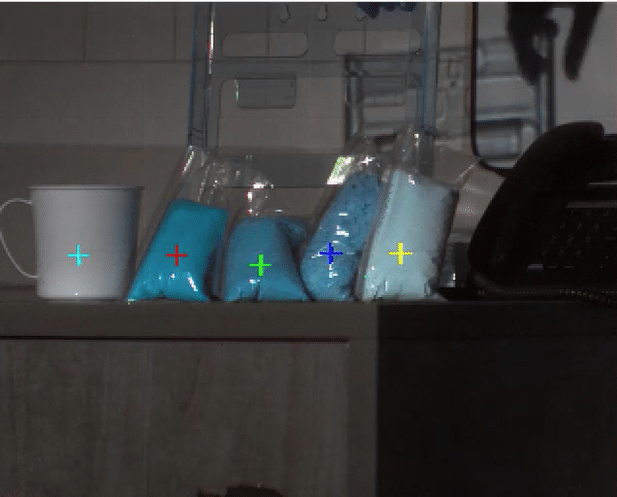

OEM Solutions
- VNIR, SWIR or MWIR spectral ranges
- Initial spectral data collection and reduction for modeling imaging system performance
- Modification of spectral band count to increase spatial resolution
- Filter array design and manufacturing
- Camera housing and mechanical design for environmental considerations
- Industry-specific interface of USB, GigE
- System assembly, alignment, calibration and testing
- Software GUI and spectral algorithm development
SOFTWARE
LightShift Pro
The LightShift PRO Software application operates in two modes: live video imaging mode or playback of stored video mode. The user has the option to stream live video from the camera and playback stored video simultaneously in two separate windows within the LightShift application window. The software also supports multiple playback windows running simultaneously.
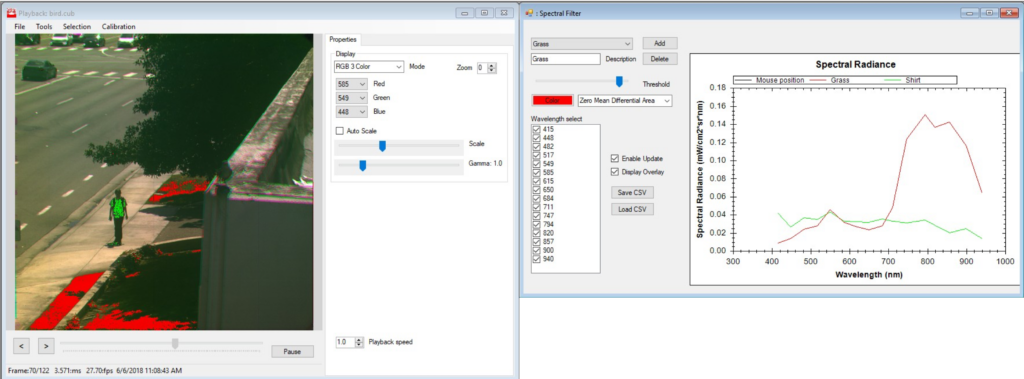
More Information
Spectral Range |
400-1000 nm |
Spectral Resolution |
25 (average) |
Spectral Bands |
16 |
Calculated Value |
512 x 512 |
Sensor |
CCD |
Data Cube Collection Rate (fps) |
28 |
Pixel Pitch (um) |
7.4 (Spectral); 29.6 (Spatial) |
Exposure Time (sec) |
0.001 |
Dynamic Range |
12-Bit |
Aperture (F/#) |
2.7 |
Lens Focal Length (mm) |
66 |
HFOV (degrees) |
6.5 |
IFOV (mRad) |
0.45 |
Weight |
5.81 lbs |
Dimensions |
16.8 cm x 10.9 cm x 28.6 cm (6.6 in. x 4.3 in. x 11.2 in) |
Power |
12 VDC; < 12W |
System Interface |
USB 3.0 |
LightShift produces accurate light field, spectral and spatial resolution by using a micro-lens array (MLA) as a series of field lenses. Each lens distributes a point in the image scene received through the objective lens across an area of a detector array (focal plane array), forming a hyperspectral detector Super-pixel. Each sub-pixel within a Super-pixel receives light that has passed through the color filter array used to spectrally characterize the object. The micro-lens spatially corrects the focused image point and projects the same image scene point onto all sub-pixels within a Super-pixel.
Due to the positioning of the 4×4 filter array on the lens’s front aperature, it can easily be replaced with a new filter array so that the camera can be re-tasked for different applications requiring different wavelengths.

